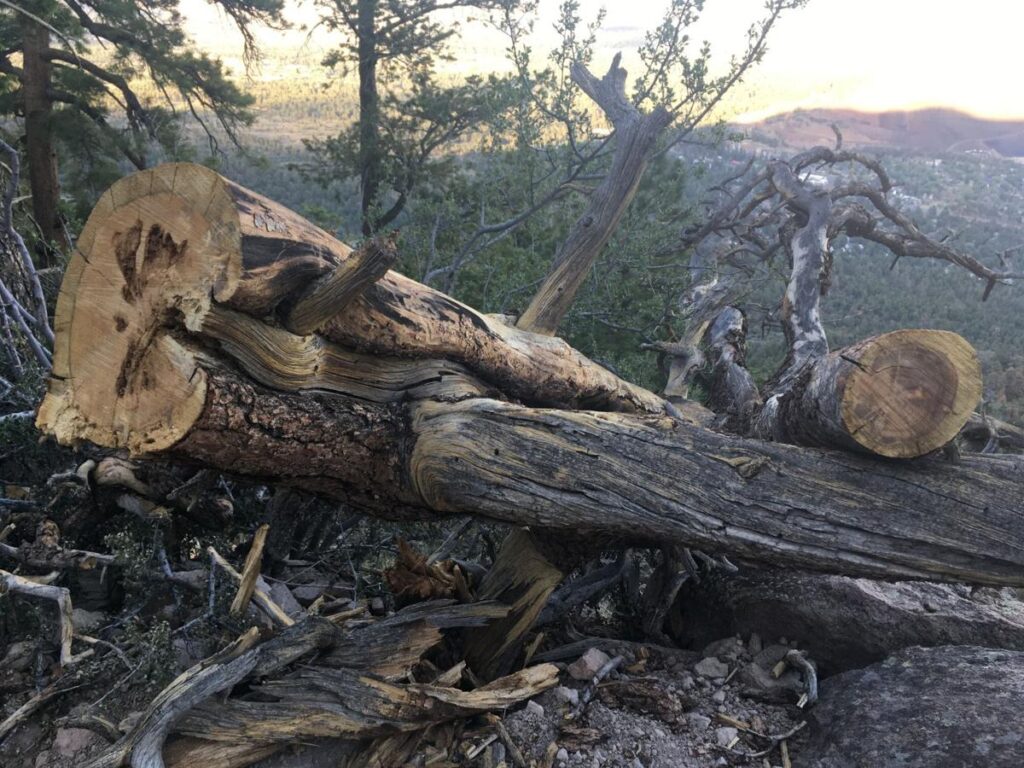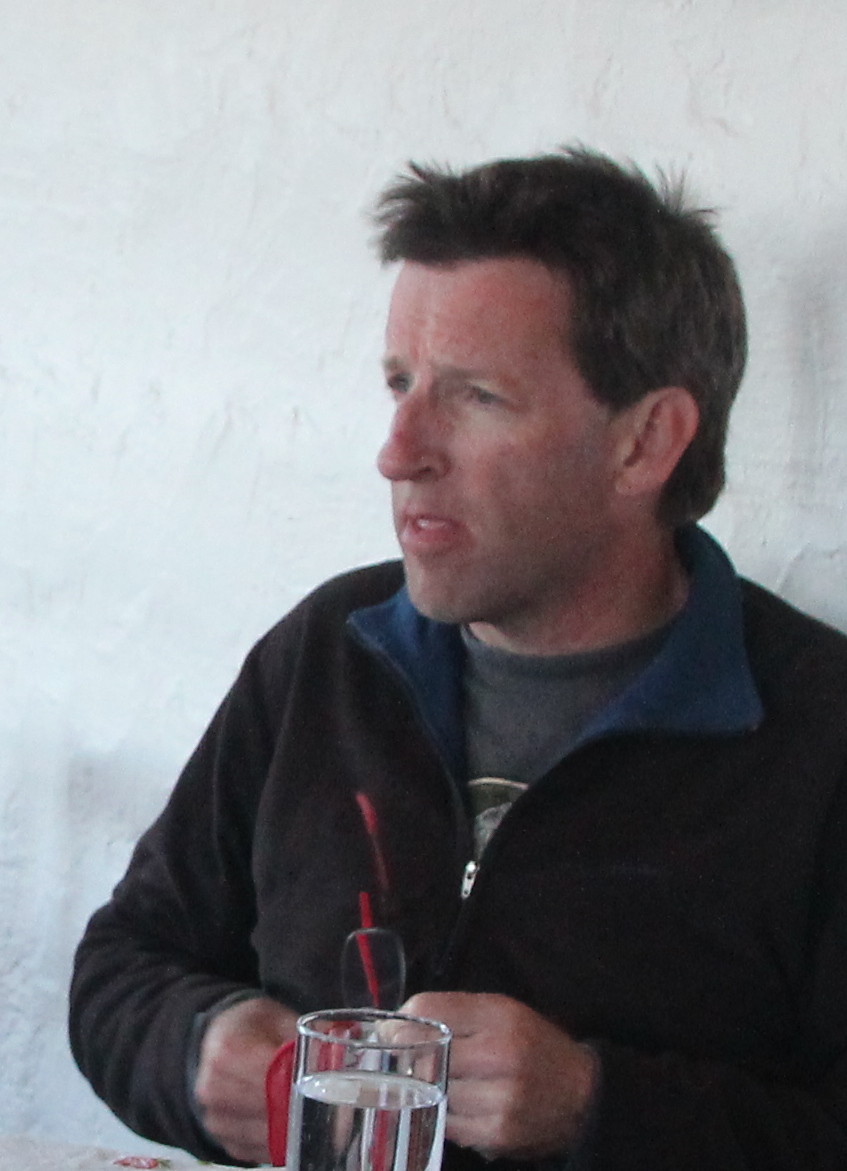
I knew before we got to the fallen tree that something had changed.
All spring I’d been hiking up the Elden Lookout Trail, often looking up to see how quickly I was gaining elevation on the steep slope. On one of those hikes while it was still quite cold in early April, I noticed the stark bleached skeleton of a stately old pine that stood adjacent to one of the numerous sharp jogs in the trail. It stood out from the living trees around it, an exclamation point in a sward of green.
“Once I get up there,” I thought, “I’ll know I’m most of the way there,” and so I did, and I was.
After that I found myself glancing upward whenever I stopped to catch my breath, measuring my progress by how close or far it appeared. There’s time to think on those strenuous walks, which is one of the reasons I love them — time to count the switchbacks, time to notice how the changing bird calls and leaf textures reflect the passage of months, time to think about the markers we use to measure our progress. They’re all around us, taking the form of markers on the trail, kids getting taller, parents getting older, friends going through changes, the punctuation marks that underscore where we are in the ongoing grammar of our life stories.
And then, just like that, they can disappear. I thought I knew what it felt like to have one of those points of triangulation vanish when my dad died after a months-long battle with cancer. Just like that, it seemed, one of my benchmarks was gone, and never again would I wonder how he would respond when I told him the news of some success I’d experienced, or a failure, or when I told him a joke. Dad will be proud — or upset, or skeptical — turned into Dad would have been. That change in perspective is itself one of life’s most notable benchmarks. And unfortunately we have all been reminded that benchmarks can disappear much more quickly, can be swatted out in an accident or other bad luck.
On that particular May afternoon it was my teenage son and I who were toiling upward on the Lookout Trail, catching our breath almost as much because of the intense gusts that rolled in as from the exertion. It was the end of the last three-day blows of the spring season, and the winds rolling in at highway speeds tossed the boughs of the trees up and about. I listened anxiously for the sound of trunks creaking. After a few dry years there are a lot of dead and dying trees on the flanks of Mount Elden. What were the odds that one would give up its grip on the dry and rocky soil just as a pair of hikers came by?
There was no answer to that question, just the heightened attention that comes of traversing a landscape that holds an elevated sense of danger. As we began our way up the switchbacks we quickly found our way blocked by a fallen trunk, an old ponderosa that had been uprooted and lay across the trail. We picked our way over it and soon came across another, smaller trunk.
Looking up to check where we were, out of habit, I realized that my marker tree also seemed to be missing.
And sure enough, it was. Or not missing, but lying across the trail, its trunk pointing up toward the summit like a marker. It was a yellow pine, some of its stout branches weathered clean of their bark. Because we could now stand in the midst of its topmost branches we could see where a long bark scar wound down from the top, widening into a charcoal divot that showed that a lightning hit had even kindled a small fire high up in the tree years ago.
We ducked under the tree, as we had to, and continued upward. My son’s feet hurt; after the winter, he was unaccustomed to steep trails. That’ll change. He’ll keep growing too, more confident on steep terrain, and maybe someday will look back on our hike as its own kind of benchmark — “This is where my dad told me about counting switchbacks, how that can make a hike seem shorter because then you know how far you still have to go.”
The next week, someone from the Forest Service hiked up with a chainsaw and cleared the trails, shoving the cut pieces down off the trail. Now they’ll become their own sort of benchmarks — a subtle sort. I’ll watch them age, the fresh yellow of the cut logs giving way to soft gray that slowly fades into the landscape, the sharp edges crumbling into decay. And all of us on the trail will be doing what we have to do: move on past into whatever the future holds for us.

